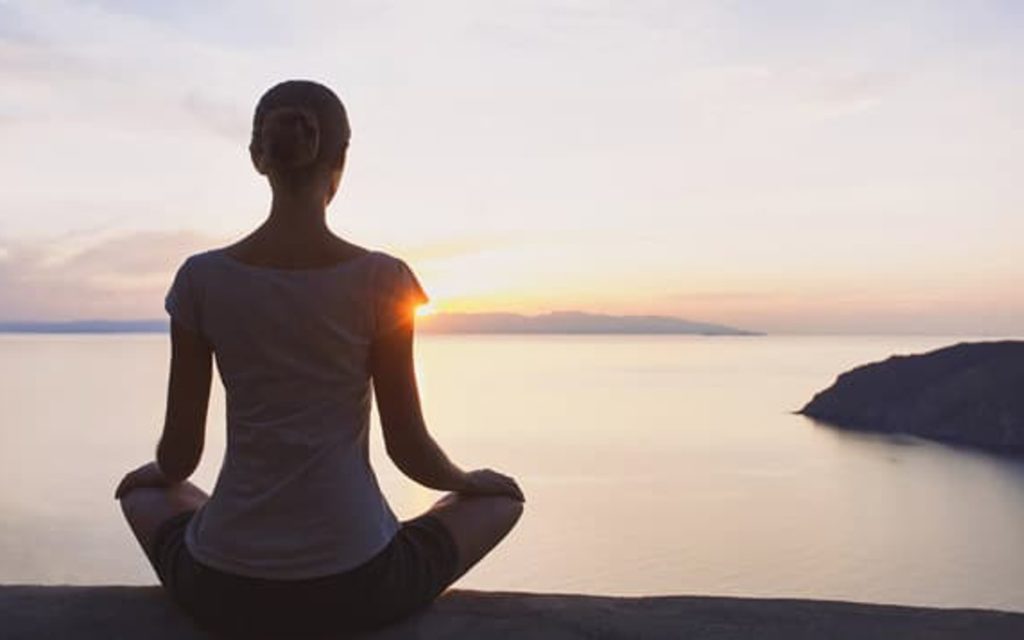
Life is full. Each of us have myriad responsibilities, personal and professional, that we identify with and hold as important in our lives — work deadlines, kids’ programming, family commitments, committees, exercise, renovations, meal planning… and the list goes on.
In a culture that celebrates busyness as the bastion of success and worth, it is easy for self care to be just another item on our never-ending ‘to-do’ list. We buzz around in our doings, checking off each item as we go, and often can feel deflated at days’ end. Or worse, we can sometimes begin to feel numb, irritable, or even depressed and anxious at the overwhelm that can easily arise with an imbalance of self.
20% of Canadians will experience a serious mental health challenge in their lives. Depression is currently the leading cause of overall disability worldwide. And in healthcare half of all physicians in North America meet the criteria for burnout, with the consequences of depression, addiction, divorce, and suicide close behind.
Our bodies and minds need rest and pause. It is simply how we are hardwired. Sleep is a time of rest, digestion and healing, and a lack of it has dire outcomes of heart disease, anxiety, depression, high blood pressure, and obesity — to name a few. When we do not get our proper rest we suffer mentally and physically. And yet as we fall forward in our overbusyness, we often miss out on proper rest and pause during the day and, in turn, our sleep quality and quantity become compromised at night.
Mindfulness is a practice of being present, on purpose, to what is here, without judgment. It is an innate ability of our nervous system that is both trainable and necessary to our human condition. Mindfulness offers a necessary pause and rest in the midst of all that we do, in order to ‘be’. Mindfulness does not require that we remove ourselves from our responsibilities, nor that we give up activities of value in our lives. It does not require us to subscribe to a certain religion, nor that we be able to sit for prolonged periods in lotus position in some Himalayan cave. It does require that we accept our own suffering, and that we have a willingness to develop a kind, gentle and accepting awareness to our own body, mind and feelings.
The brain, in all of its complexity, is like a series of muscles – each skill and attribute grows in capacity and size with continued use. The area of the brain associated with fine motor movement of the fingers is larger in master violin players than in those who do not play violin. The area of the brain that controls visual spatial orientation is larger in London taxi drivers than in those who do not drive cab. And the area of the brain associated with focus, concentration, empathy and compassion is larger in those who practice mindfulness meditation than in those who do not. This is the basis of neuroplasticity.
What we practice, we hone. Much of the time we are caught up in autopilot — unconscious habits of the mind and emotions . Shame, anger, judgement, worry are all potentials of the brain and nervous system that are enhanced with practice. When worry is a habit, we do not need something to worry about, we will find something to worry about! Joy, gratitude, and compassion are also skills that can become habits, consciously or unconsciously. When we are present and wakeful in our lives we learn to respond to any given circumstances or challenge, rather than react based on old patterns of belief and behavior.
Meditation is a formal practice of mindfulness. It is a practice of exercising the mind-heart in a way that allows us to nurture and build upon our human attributes of focus, attention, non judgement, curiousity, and acceptance..,among others. Through regular practice we grow in our ability to be present for each moment, no matter what is here. We gain a capacity to see more clearly and to act more skillfully.
What does this have to do with you and your own life? What might mindfulness offer to your relationship with others, or with yourself? How might a greater ability to be present and wakeful affect your work, or your commitments and responsibilities? How might the pause and rest of a single, purposeful breath, or step, allow your mind and body a greater sense of balance and poise?
Life is full… and precious. Mindfulness and meditation are an opportunity to be more wakeful and present in all that unfolds around us. In essense it is an opportunity to be more fully alive.